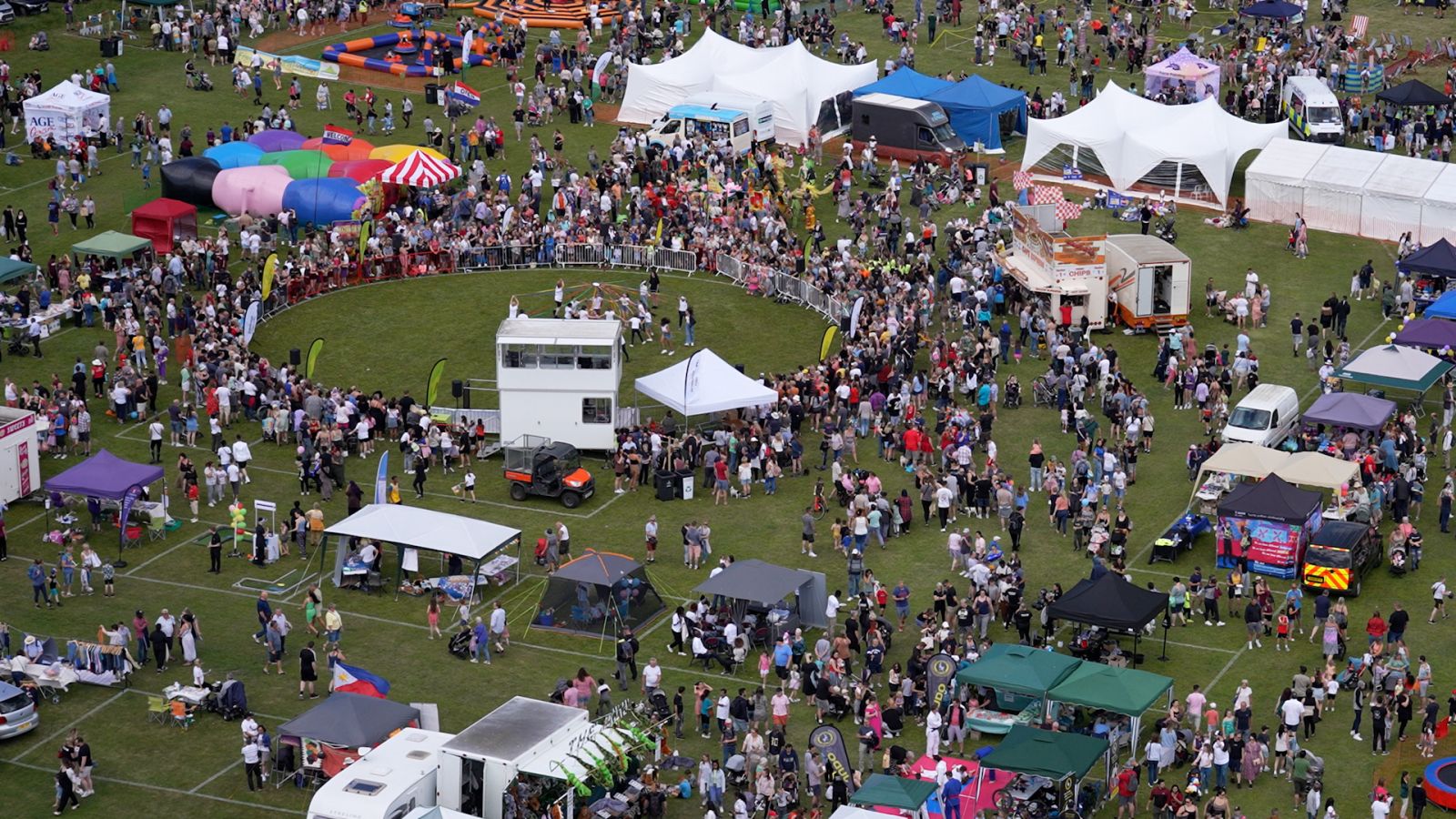 Stevenage Day is the annual town event in Stevenage, held on the second Sunday in June. It attracts around 20,000 visitors over seven hours. The first Stevenage Day was on 13th June 1959, coinciding with the opening of the new pavilion on King George V playing fields by the Urban District Council, now Stevenage Borough Council. The initial event featured athletics, seven-a-side football, and tug of war, marking a successful beginning.
Stevenage Day is the annual town event in Stevenage, held on the second Sunday in June. It attracts around 20,000 visitors over seven hours. The first Stevenage Day was on 13th June 1959, coinciding with the opening of the new pavilion on King George V playing fields by the Urban District Council, now Stevenage Borough Council. The initial event featured athletics, seven-a-side football, and tug of war, marking a successful beginning.
Since then, Stevenage Day has remained free for visitors, with stallholders charged a fee, and voluntary/charity organisations paying a reduced rate. The event is vital for many local Voluntary Community Social Enterprise organisations, helping them raise funds for the year. Stevenage Day celebrates the community and its diversity. In 2024, there will be a dedicated pride area and music stage for the LGBTQ+ community, aiming to support the creation of a separate pride event in 2025. This follows the success of Stevenage Reimagined, which celebrated the town's diverse cultures.
The main challenge is getting over 200 stallholders, commercial rides, three music stages, and contractors on site in a four-hour window before the event begins. Vehicles allowed to stay on site are checked by security, while others must leave by 11:30 am to create a sterile area for pedestrian movement. After the event, vehicles are allowed back on site around 5:30pm, with most of the park cleared by 7pm. The Council's ground team then moves in to clean up the area.
In 2023, the traditional stallholder application process faced significant challenges. Applications were submitted on paper or scanned formats, causing delays of four to five days. Payments were accepted through five different methods, creating reconciliation challenges.
To modernise the process, the council introduced a digital pitch booking service using Caseviewer, eliminating paper submissions and manual data entry. The new system allows for quick review, amendments, and approval or rejection of applications with customisable emails. Approved applicants receive a payment link via email.
This digital transformation has reduced administrative burdens, improved operational efficiency, and enhanced customer satisfaction by providing a smoother application and payment process. Card payments now offer greater convenience and security.
On 12th June 2019, Stevenage Borough Council declared a climate emergency, aiming for net-zero emissions by 2030. Sustainability is key in all council actions, including event organisation.
Stevenage Day takes place on a public park with limited power access, so generators are used. The Council has switched from diesel generators to those using Hydrogenated Vegetable Oil. Two music stages (provided by The Stage Bus) use solar power, eliminating the need for generators.
The Council's waste services department collects waste during the event, providing bins for waste and recycling. The waste is sorted at the recycling depot, giving the Council control over disposal. All food and drink containers used by caterers are recyclable.
The event is free to attend, with free parking available in Town Centre Council car parks. A free festival village within the event offers activities for all to participate in. Stevenage Day features various activities, including "Rock in the Park" for up-and-coming talent and a food court with diverse cuisines.
The team behind the event is looking forward to seeing six months of hard work come to fruition in a seven-hour event. It's exciting to see families and the community come together to celebrate Stevenage and its heritage. They’re also eager to see the new and emerging talent on the music stages, showcasing local talent.
The Council has strong working relationships with event contractors built over the past ten years. The Council works with several long-term contractors, including:
Stagebus - two solar-powered stages
SRM Security - security services
St John Ambulance - first aid services
WC Portables - portable toilets
GT Trax - event fencing
ESS - site PA for the main arena and third stage
